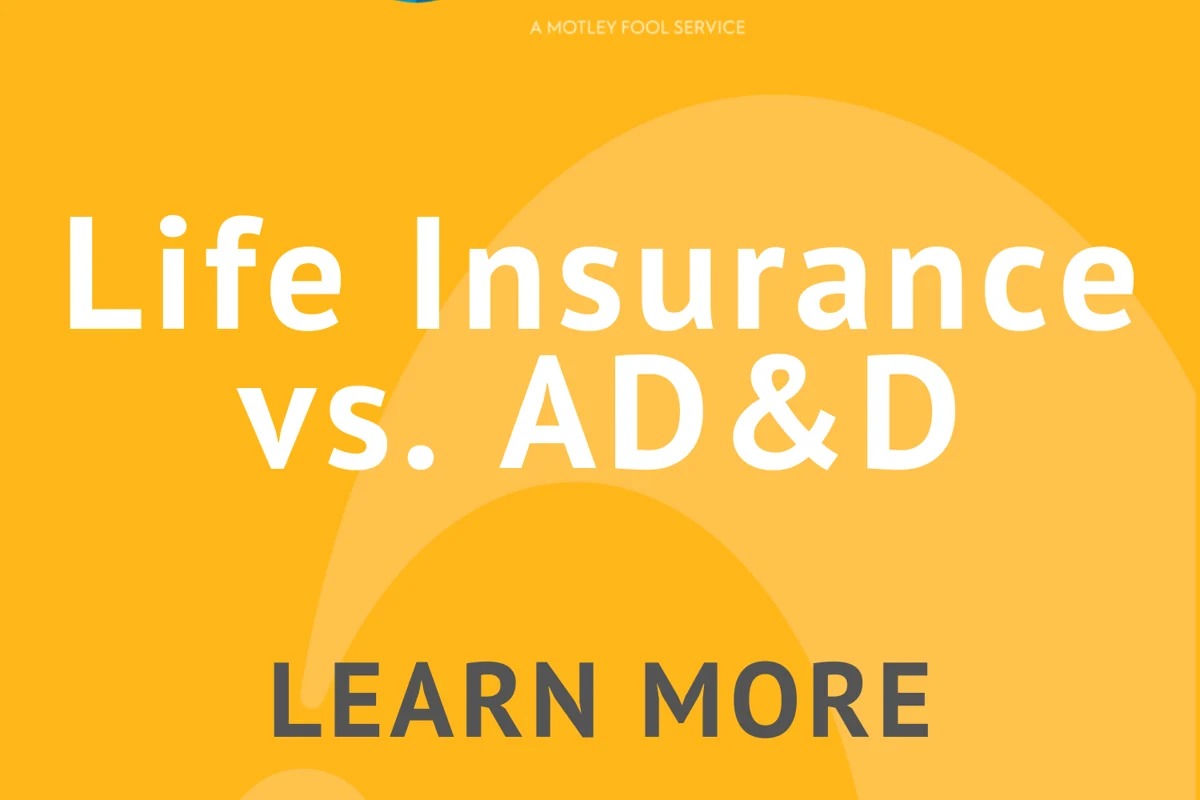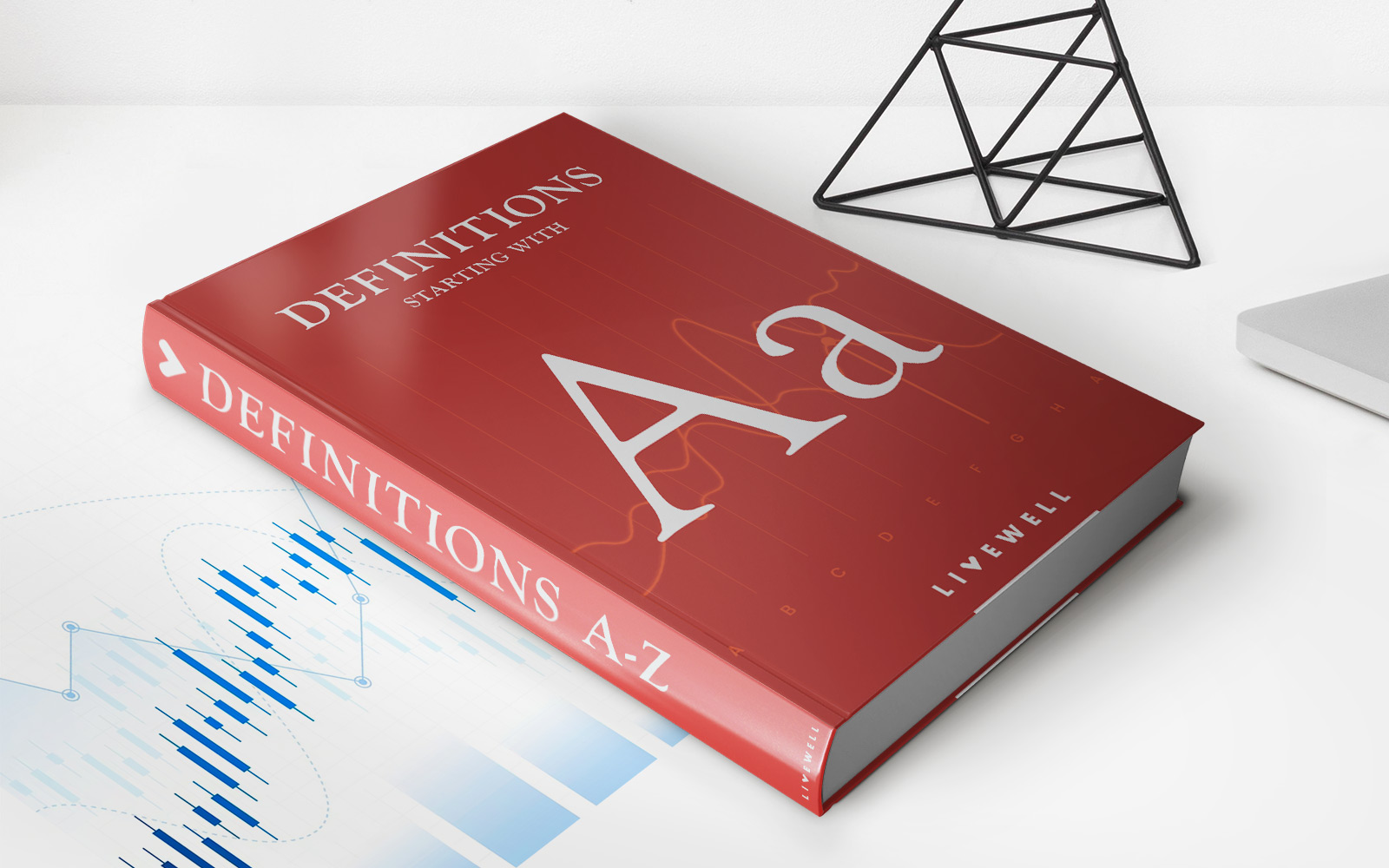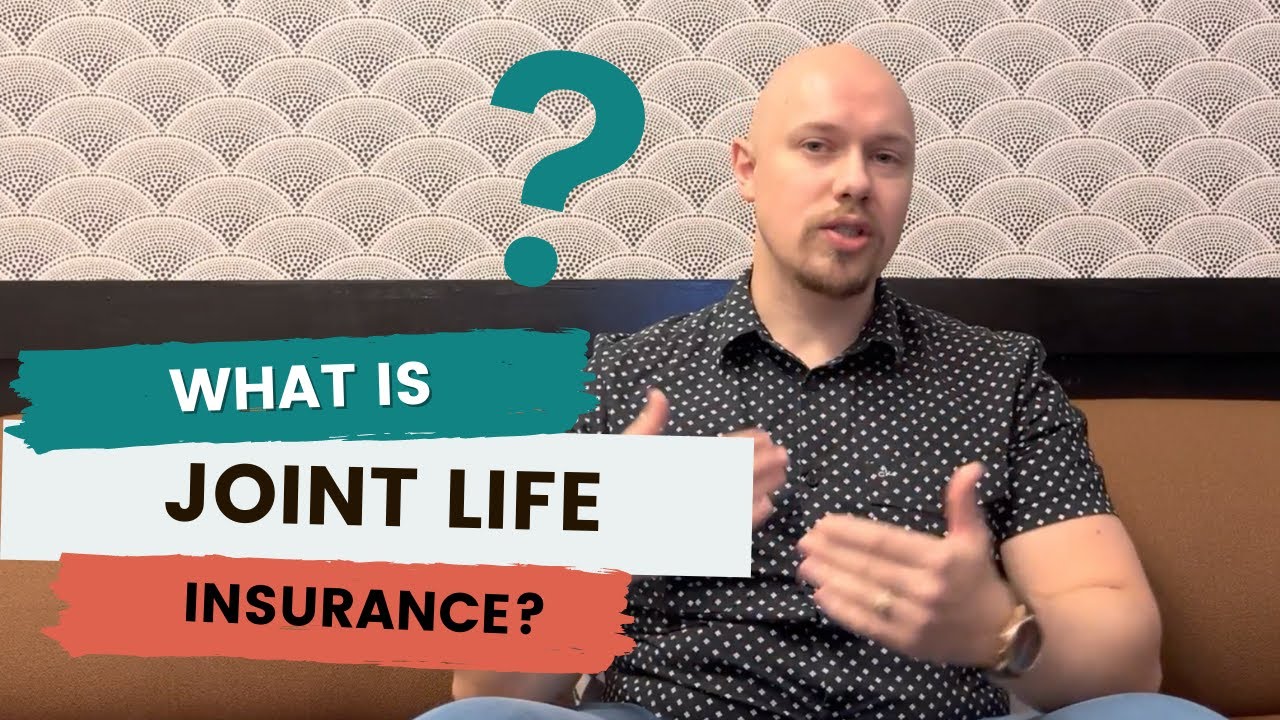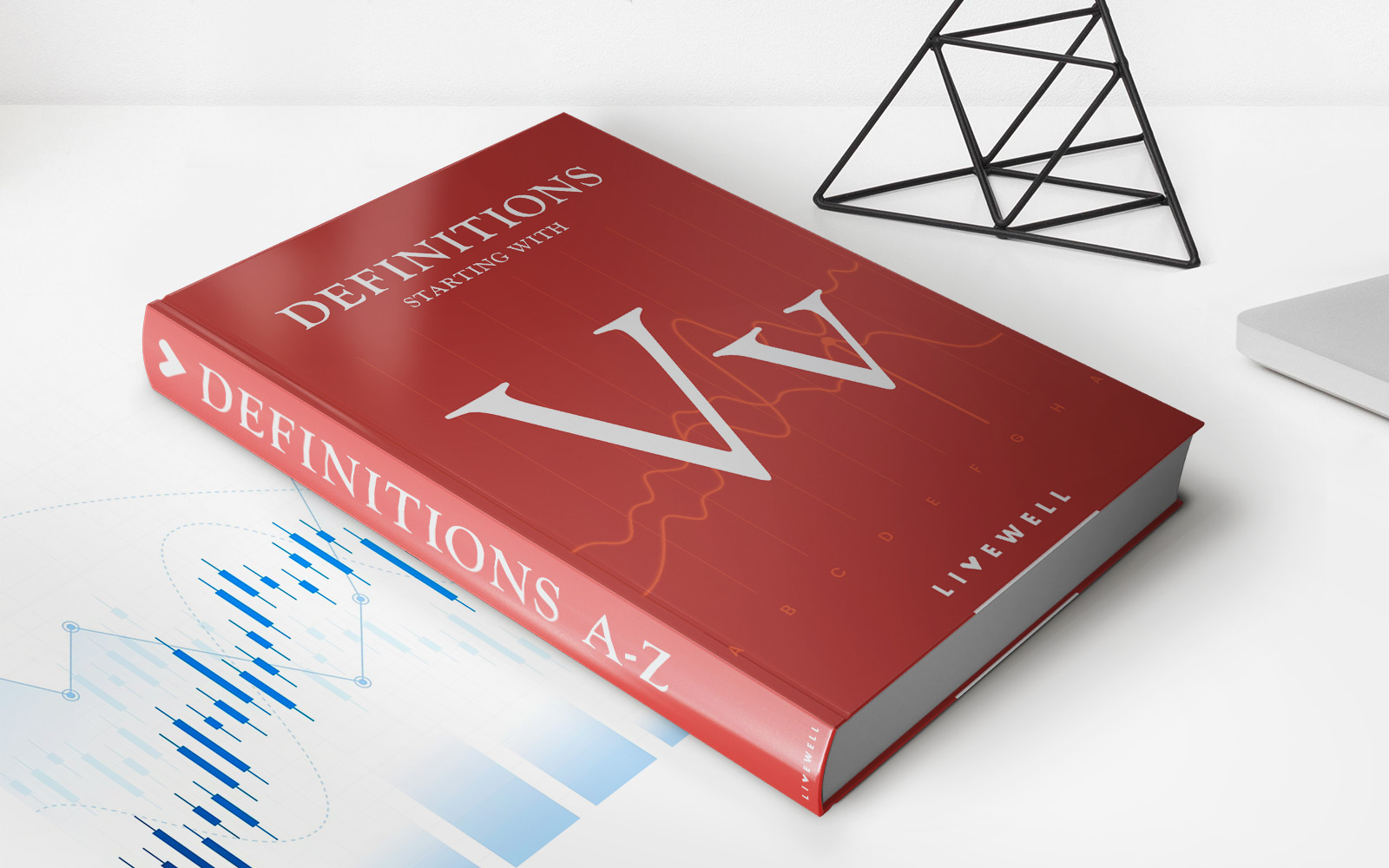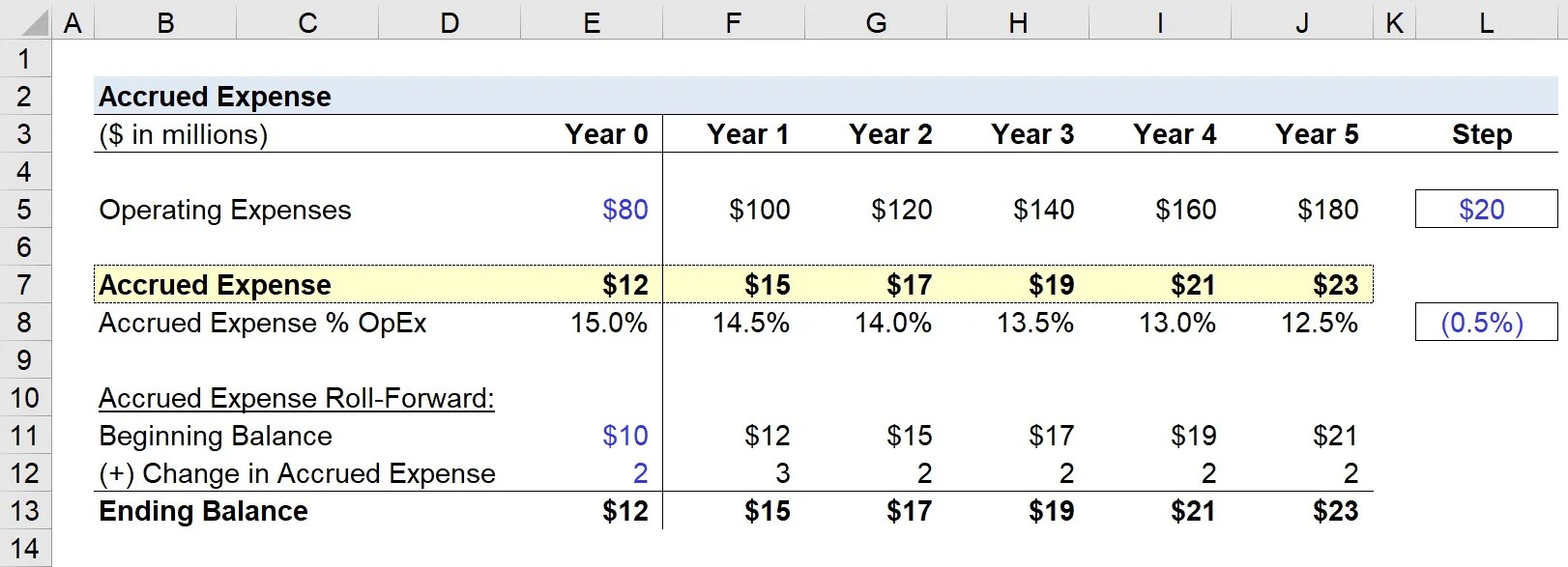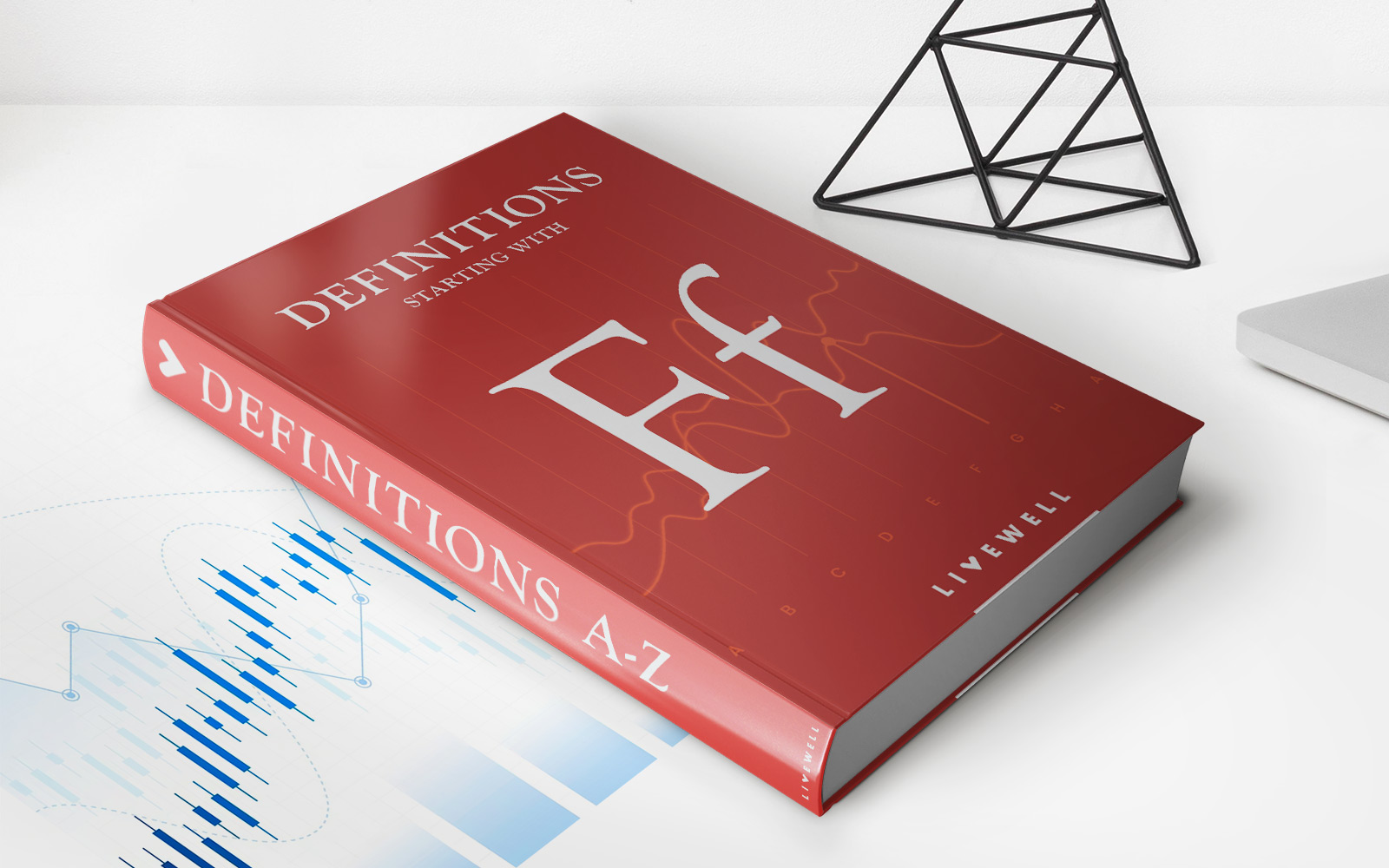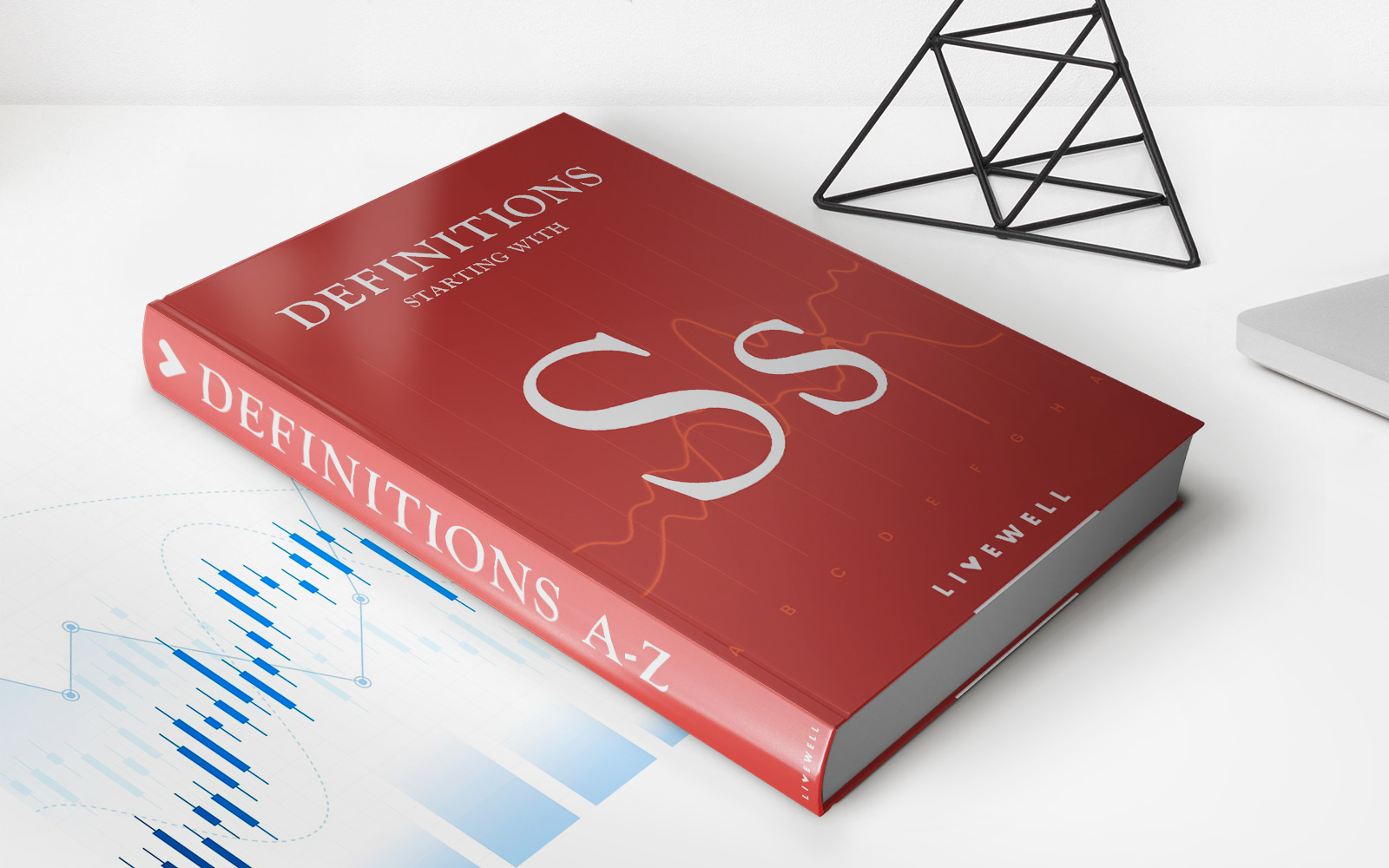Home>Finance>What Is Accidental Death And Dismemberment Vs Life Insurance?


Finance
What Is Accidental Death And Dismemberment Vs Life Insurance?
Published: November 16, 2023
Learn the differences between accidental death and dismemberment insurance and life insurance, and understand how they can protect your finances.
(Many of the links in this article redirect to a specific reviewed product. Your purchase of these products through affiliate links helps to generate commission for LiveWell, at no extra cost. Learn more)
Table of Contents
- Introduction
- Definition of Accidental Death and Dismemberment (AD&D) Insurance
- Definition of Life Insurance
- Coverage and Benefits of Accidental Death and Dismemberment (AD&D) Insurance
- Coverage and Benefits of Life Insurance
- Factors to Consider when Choosing Between AD&D Insurance and Life Insurance
- Premiums and Cost Comparison of AD&D Insurance and Life Insurance
- Exclusions and Limitations of Accidental Death and Dismemberment (AD&D) Insurance
- Exclusions and Limitations of Life Insurance
- Pros and Cons of Accidental Death and Dismemberment (AD&D) Insurance
- Pros and Cons of Life Insurance
- Conclusion
Introduction
Life is full of uncertainties, and it is essential to protect our loved ones and ourselves from unexpected events. Accidental Death and Dismemberment (AD&D) insurance and life insurance are two types of insurance policies that offer financial protection in case of unfortunate events.
Accidental Death and Dismemberment (AD&D) insurance provides coverage specifically for accidents resulting in death or dismemberment, whereas life insurance provides coverage for any cause of death. While both insurance policies aim to provide financial security, they differ in terms of coverage, benefits, premiums, and limitations.
Understanding the nuances of AD&D insurance and life insurance is crucial in making an informed decision about which policy best suits your needs. In this article, we will delve into the differences between AD&D insurance and life insurance, highlighting their coverage, benefits, costs, and other factors to consider when choosing between the two.
By the end of this article, you will have a comprehensive understanding of AD&D insurance and life insurance, helping you make the right choice to protect yourself and your loved ones.
Definition of Accidental Death and Dismemberment (AD&D) Insurance
Accidental Death and Dismemberment (AD&D) insurance is a type of insurance coverage that provides financial protection in the event of accidental death or serious injuries resulting in dismemberment. Unlike life insurance, AD&D insurance focuses specifically on accidents and does not cover death or injuries caused by natural causes, illnesses or diseases.
AD&D insurance offers a lump sum payment to the beneficiary in the event of accidental death or dismemberment. The amount of coverage varies depending on the policy and can range from a few thousand dollars to millions of dollars.
Dismemberment refers to the loss of certain body parts or functions due to an accident. This can include the loss of limbs, sight, hearing, or the ability to speak. The amount of compensation for dismemberment is typically specified in the policy, and the severity of the injury determines the amount paid out.
It’s important to note that AD&D insurance is not meant to replace life insurance but rather to supplement it. It provides an additional layer of protection against accidents, which are typically unpredictable and can cause significant financial strain on the affected individual or their family.
AD&D insurance policies may also offer additional benefits such as coverage for accidental medical expenses, rehabilitation, or transportation costs related to accidents. These extra benefits can be crucial in providing financial support during the recovery process.
It’s advisable to carefully review the terms and conditions of an AD&D insurance policy before purchasing to understand the specific coverage and limitations. Additionally, it’s important to assess your individual needs and risk factors to determine if AD&D insurance is a suitable addition to your existing insurance coverage.
Definition of Life Insurance
Life insurance is a type of insurance policy that provides financial protection to your beneficiaries in the event of your death. It is designed to provide peace of mind knowing that your loved ones will be taken care of financially after you’re gone.
Life insurance policies typically offer a death benefit, which is a lump sum payment that is paid out to the designated beneficiaries upon the policyholder’s death. The amount of coverage can vary depending on the policy and the amount of premium paid.
One of the key features of life insurance is that it covers death from any cause, whether it’s due to illness, accidents, or natural causes. This means that regardless of how you pass away, your beneficiaries will receive the death benefit as long as the policy is active and the premiums are up to date.
Life insurance policies can be categorized into two main types: term life insurance and permanent life insurance.
Term Life Insurance: Term life insurance provides coverage for a specified term, typically ranging from 10 to 30 years. If the policyholder passes away during the term, the death benefit is paid out to the beneficiaries. However, if the policyholder outlives the term, there is no payout. Term life insurance is generally more affordable compared to permanent life insurance.
Permanent Life Insurance: Permanent life insurance, as the name suggests, provides coverage for the entire lifetime of the policyholder. It also includes a cash value component, which grows over time and can be accessed through policy loans or withdrawals. Permanent life insurance includes various types, such as whole life insurance, universal life insurance, and variable life insurance, each with its own features and benefits.
Life insurance policies can be tailored to fit individual needs and financial goals. Factors such as age, health condition, income, and the number of dependents can influence the type and amount of life insurance coverage needed.
It’s important to carefully evaluate your financial situation and consider your long-term plans when choosing a life insurance policy. Consulting with a financial advisor or insurance professional can help you navigate the options and select a policy that suits your specific needs.
Coverage and Benefits of Accidental Death and Dismemberment (AD&D) Insurance
Accidental Death and Dismemberment (AD&D) insurance provides coverage specifically for accidents resulting in death or dismemberment. While coverage can vary between policies, here are some common benefits that AD&D insurance offers:
1. Accidental Death Benefit:
If the insured person dies as a result of an accident, AD&D insurance pays a death benefit to the designated beneficiary. The amount of the benefit is typically based on the coverage amount chosen by the policyholder.
2. Dismemberment Benefit:
If the insured person suffers a specific type of injury resulting in the loss of a limb, sight, hearing, or ability to speak due to an accident, AD&D insurance provides a benefit payment. The amount of compensation varies based on the severity and type of dismemberment.
3. Medical Expense Coverage:
Some AD&D policies may include coverage for medical expenses resulting from accidents. This can help offset costs such as hospital bills, surgeries, or rehabilitation services required due to the accident.
4. Rehabilitation Benefits:
AD&D insurance policies may also provide coverage for rehabilitation services such as physical therapy or occupational therapy, which can assist in the recovery process after an accident.
5. Transportation Expenses:
In the event of an accident resulting in serious injuries, AD&D insurance might cover transportation costs, including ambulance services or air transportation to a medical facility for treatment.
6. Child Education Benefits:
Some AD&D policies may offer additional benefits like providing funds for the education of the insured person’s children in case of accidental death.
It’s important to note that AD&D insurance coverage is limited to accidents only and does not include coverage for death or injuries caused by natural causes, illnesses, or diseases. Additionally, policy terms and conditions, as well as coverage limits, can vary between insurance providers, so it’s crucial to carefully review the policy details before purchasing.
AD&D insurance can serve as a valuable supplement to other insurance policies, especially if you engage in high-risk activities or have a higher likelihood of being involved in accidents. However, it’s essential to assess your individual needs and factors before deciding on adding AD&D insurance to your insurance portfolio.
Coverage and Benefits of Life Insurance
Life insurance provides coverage for your beneficiaries in the event of your death. While coverage can vary depending on the type of policy and the insurance provider, here are some common benefits of life insurance:
1. Death Benefit:
The primary benefit of life insurance is the death benefit, which is a lump sum payment provided to the beneficiaries upon the policyholder’s death. This benefit can help cover funeral expenses, outstanding debts, and provide financial support for the surviving family members.
2. Income Replacement:
Life insurance can serve as a source of income replacement for your dependents. The death benefit can help replace the lost income and ensure that your loved ones are financially stable even after you’re gone.
3. Mortgage and Debt Repayment:
Life insurance can be used to pay off any outstanding mortgage or debts, relieving the financial burden on your family. This can help prevent them from losing their home or facing difficulties in managing the debt on their own.
4. Education Funding:
Life insurance can be utilized to provide funds for your children’s education. The death benefit can be used to cover tuition fees, books, and other educational expenses, ensuring that your children’s future is secure.
5. Estate Planning:
Life insurance can be used as a tool for estate planning. It can help cover estate taxes or provide liquidity for your beneficiaries to manage any estate-related expenses or obligations.
6. Cash Value Accumulation:
Permanent life insurance policies, such as whole life insurance or universal life insurance, accumulate cash value over time. This cash value can be accessed through policy loans or withdrawals, providing a source of funds during your lifetime for various financial needs.
Life insurance offers financial protection and peace of mind, knowing that your loved ones will be taken care of financially when you’re no longer around. It’s important to carefully review the terms and conditions of your life insurance policy, including coverage limits, exclusions, and the premium payments required to keep the policy active.
Choosing the right type and amount of life insurance coverage depends on various factors, including your personal circumstances, financial goals, and the needs of your dependents. Seeking guidance from a knowledgeable insurance professional can help you navigate the options and select the most suitable life insurance policy for you and your family.
Factors to Consider when Choosing Between AD&D Insurance and Life Insurance
When deciding between Accidental Death and Dismemberment (AD&D) insurance and life insurance, several factors should be taken into consideration to determine which policy best suits your needs. Here are some essential factors to consider:
1. Coverage:
One of the key factors to consider is the coverage provided by each policy. AD&D insurance specifically covers accidents resulting in death or dismemberment, while life insurance provides coverage for death from any cause. Evaluate your risk factors and determine which type of coverage is more relevant to your situation.
2. Benefit Payout:
Consider the payout structure of each policy. AD&D insurance typically provides a lump sum payment in the event of accidental death or dismemberment, while life insurance pays out a death benefit to the beneficiaries upon the policyholder’s death. Assess how these benefit structures align with your financial goals and the needs of your loved ones.
3. Premiums:
Compare the premiums for AD&D insurance and life insurance policies. AD&D insurance is generally more affordable than life insurance, making it an attractive option for those on a tight budget. However, it’s important to consider the overall value and coverage provided by the policies in relation to the premiums.
4. Additional Benefits:
AD&D insurance policies may offer additional benefits such as coverage for accidental medical expenses or rehabilitation services. Consider if these extra benefits align with your specific needs or if they provide added value to the policy.
5. Existing Coverage:
Assess your existing insurance coverage and determine if either AD&D insurance or life insurance will fill any gaps. If you already have a comprehensive life insurance policy, you may find that AD&D insurance provides overlapping coverage.
6. Risk Factors:
Consider your risk factors for accidents and injuries. If your lifestyle or occupation puts you at a higher risk of accidents, AD&D insurance might be more beneficial. Conversely, if you have a family history of certain health conditions or if you want coverage for any cause of death, life insurance may be the better choice.
It’s advisable to carefully review the terms and conditions of each policy, including the coverage limits, exclusions, and any limitations. Evaluate your individual needs, financial goals, and risk tolerance to make an informed decision that provides the necessary financial protection for you and your loved ones.
Consulting with an insurance professional can also help in assessing your needs and securing the most suitable insurance coverage based on your specific circumstances.
Premiums and Cost Comparison of AD&D Insurance and Life Insurance
When considering Accidental Death and Dismemberment (AD&D) insurance and life insurance, it’s important to evaluate the premiums and cost associated with each type of policy. Here are some factors to consider when comparing the premiums and costs:
1. Premiums:
AD&D insurance premiums are typically lower compared to life insurance premiums. This is because AD&D insurance provides coverage specifically for accidents, which are statistically less likely to occur compared to death from natural causes or illnesses. Life insurance premiums are typically higher due to the broader coverage it offers.
2. Coverage Amount:
The coverage amount you choose for AD&D insurance and life insurance will directly impact the premiums you pay. Higher coverage amounts will result in higher premiums. It’s important to carefully assess your needs and financial obligations to choose an appropriate coverage amount that aligns with your budget.
3. Term vs. Permanent Insurance:
If you opt for term life insurance, which provides coverage for a specific term, the premiums are typically lower compared to permanent life insurance. Permanent life insurance policies, such as whole life insurance or universal life insurance, have higher premiums due to their lifetime coverage and cash value component.
4. Health Factors:
Your health plays a significant role in determining the premiums for both AD&D insurance and life insurance. For life insurance, you may be required to undergo a medical exam or provide health information. AD&D insurance premiums are not typically influenced directly by health factors, as coverage is limited to accidents.
5. Additional Riders and Benefits:
Both AD&D insurance and life insurance policies may offer additional riders or benefits that can enhance coverage but come at an extra cost. These may include options such as accidental medical expense coverage or accelerated death benefit rider. Consider if these optional riders are necessary for your specific needs and assess the associated costs.
When comparing premiums and costs, it’s important to assess the overall value and coverage provided by each policy. While AD&D insurance may have lower premiums, it offers limited coverage compared to the broader coverage provided by life insurance. Consider your financial goals, risk factors, and the needs of your dependents when deciding which policy best fits your situation.
It’s advisable to obtain quotes and compare premiums from reputable insurance providers to ensure you are getting the best value for your premium payments. Consulting with an insurance professional can also provide insights into the cost comparison and help you make an informed decision.
Exclusions and Limitations of Accidental Death and Dismemberment (AD&D) Insurance
While Accidental Death and Dismemberment (AD&D) insurance provides valuable coverage for accidents resulting in death or dismemberment, it’s important to be aware of the exclusions and limitations that may apply to these policies. Here are some common exclusions and limitations to consider:
1. Non-Accidental Deaths:
AD&D insurance specifically covers accidental deaths and dismemberments. Deaths resulting from natural causes, illnesses, or diseases are typically excluded from coverage. It’s important to understand that AD&D insurance is not a substitute for life insurance, which covers deaths from any cause.
2. Waiting Period:
Some AD&D insurance policies may have a waiting period before coverage takes effect. This means that if an accident occurs during this waiting period, the policy may not provide benefits. It’s crucial to review the policy terms and conditions to understand any waiting periods that may apply.
3. Intentional Self-Inflicted Injuries:
AD&D insurance policies generally exclude coverage for self-inflicted injuries. If the insured person intentionally causes their own death or dismemberment, the policy may not pay out benefits. This exclusion is common across various types of insurance policies.
4. Injuries from High-Risk Activities:
AD&D insurance policies may exclude coverage for injuries sustained while engaging in high-risk activities such as extreme sports, skydiving, or professional racing. If you participate in such activities, it’s important to check if coverage is excluded or requires an additional premium.
5. Limitations on Dismemberment:
AD&D insurance policies often have specific criteria for dismemberment benefits. The loss of a body part or function must meet certain requirements outlined in the policy for a claim to be valid. The severity of the injury and the impact on daily functioning may determine the amount of compensation given.
It’s important to carefully review the policy documents and discuss any concerns with your insurance provider or agent. Understanding the exclusions and limitations of AD&D insurance is crucial in assessing the scope of coverage provided and making an informed decision.
AD&D insurance can be a valuable supplement to other insurance policies, but it’s essential to match the coverage and limitations with your specific needs and risk factors. If you have concerns about certain exclusions, you may need to explore alternative insurance options or consider obtaining additional coverage to address those specific concerns.
Exclusions and Limitations of Life Insurance
While life insurance provides essential coverage in the event of your death, it’s important to understand the exclusions and limitations that may apply to these policies. Here are some common exclusions and limitations to consider:
1. Suicide Clause:
Most life insurance policies have a suicide clause, which typically states that if the insured person dies by suicide within a specified period after the policy is issued (usually two years), the death benefit will not be paid out. This clause is in place to prevent individuals from taking out a policy with the intent of causing their own death for financial gain.
2. Contestability Period:
During the contestability period, typically the first two years of the policy, the insurance company has the right to investigate the information provided in the application. If it is discovered that there was material misrepresentation or fraud, the company may deny the claim or adjust the benefits paid out.
3. Exclusions for Risky Activities:
Some life insurance policies may have exclusions for specific high-risk activities, such as extreme sports, professional racing, or other hazardous hobbies. If the insured person engages in these activities and dies as a result, the policy may not pay out the death benefit.
4. Non-Disclosure of Health Information:
Life insurance applications typically require medical underwriting, and it is crucial to provide accurate health information. If there is a deliberate omission or misrepresentation of relevant health information, the insurance company may deny the claim or adjust the benefits accordingly.
5. War or Acts of Terrorism Exclusions:
Some life insurance policies exclude coverage for deaths resulting from war, acts of terrorism, or participation in military service during times of conflict. It’s important to review the policy and understand any exclusions related to these circumstances.
6. Grace Period for Premium Payments:
Failure to pay premiums within the specified grace period can result in the policy lapsing and the termination of coverage. It’s important to adhere to premium payment deadlines and understand the grace period outlined in the policy.
It’s essential to carefully review the terms and conditions of your life insurance policy, including the exclusions and limitations. Consulting with an insurance professional can help clarify any questions or concerns you may have and ensure that you have a clear understanding of the policy’s coverage and limitations.
Understanding the exclusions and limitations of life insurance allows you to make informed decisions about your coverage and ensure that you have appropriate measures in place to protect your loved ones financially.
Pros and Cons of Accidental Death and Dismemberment (AD&D) Insurance
Accidental Death and Dismemberment (AD&D) insurance provides unique coverage for accidents resulting in death or dismemberment. Like any insurance policy, AD&D insurance has its own set of pros and cons. Here are some key advantages and disadvantages to consider:
Pros:
- Specialized Coverage: AD&D insurance offers specialized coverage specifically for accidents. This can be particularly beneficial for individuals engaged in high-risk activities or occupations.
- Financial Protection: AD&D insurance can provide a financial safety net in case of accidental death or serious injuries resulting in dismemberment. The lump sum payment from the policy can help cover immediate expenses and provide ongoing financial support.
- Affordability: AD&D insurance policies generally have lower premiums compared to life insurance policies. This affordability makes it accessible to a wider range of individuals, including those on a limited budget.
- Additional Benefits: Some AD&D policies offer additional benefits such as coverage for medical expenses, rehabilitation services, or child education benefits. These extra benefits can provide valuable support during the recovery process or for the future education of your children.
- Supplement to Existing Coverage: AD&D insurance can act as a supplement to other insurance policies, such as life insurance or disability insurance. It provides an extra layer of coverage specifically for accidents, complementing the broader coverage from other policies.
Cons:
- Limited Coverage: AD&D insurance covers only accidents resulting in death or dismemberment, excluding deaths from natural causes or illnesses. This limited coverage may not address all the potential risks and financial needs of the insured person or their beneficiaries.
- Exclusions and Limitations: AD&D insurance policies often have exclusions and limitations that may impact coverage. These can include restrictions on certain high-risk activities or limitations on the type and severity of dismemberment injuries covered.
- No Cash Value: AD&D insurance policies generally do not accumulate cash value over time, unlike certain types of life insurance policies. This means there is no investment component or potential for the policy to grow in value.
- No Coverage for Non-Accidental Deaths: AD&D insurance provides no coverage for deaths resulting from natural causes, illnesses, or suicides. For comprehensive coverage in all cases of death, regardless of cause, a life insurance policy is necessary.
Ultimately, the decision to obtain AD&D insurance depends on your individual circumstances, risk factors, and financial goals. Assessing your specific needs and considering the advantages and disadvantages outlined above can help you make an informed decision about whether AD&D insurance aligns with your insurance portfolio and provides the necessary financial protection for you and your loved ones.
Pros and Cons of Life Insurance
Life insurance is a crucial financial tool that offers a variety of benefits and protections. However, it’s important to consider the pros and cons before purchasing a policy. Here are the key advantages and disadvantages of life insurance:
Pros:
- Financial Protection: Life insurance provides a financial safety net for your loved ones in the event of your death. The death benefit can cover expenses such as funeral costs, outstanding debts, and ongoing living expenses.
- Income Replacement: The death benefit from a life insurance policy can replace lost income and help support your family’s financial stability, ensuring that they can maintain their lifestyle and meet their financial obligations.
- Estate Planning: Life insurance can be a valuable tool for estate planning. It can help cover estate taxes and provide liquidity to settle any financial obligations, such as outstanding loans or mortgage payments.
- Debt Repayment: Life insurance can be used to pay off outstanding debts, including mortgages, car loans, and credit card balances. This prevents the burden of debt from falling on your loved ones after your passing.
- Educational Support: The death benefit from a life insurance policy can be used to fund your children’s education. This ensures that their educational expenses, such as tuition fees and college expenses, are covered even when you’re no longer there to provide for them.
- Cash Value Accumulation: Permanent life insurance policies, such as whole life or universal life insurance, accumulate cash value over time. This cash value can be accessed through loans or withdrawals, providing a potential source of funds for various financial needs or emergencies.
Cons:
- Cost: Life insurance premiums can be relatively higher compared to other types of insurance policies. The premium amount depends on various factors such as age, health, coverage amount, and type of policy.
- Qualification Requirements: Some types of life insurance policies require medical underwriting, which means you may need to undergo a medical exam or provide detailed health information. This can impact the cost of premiums or the ability to qualify for coverage.
- Premium Payments: Life insurance policies require consistent premium payments to keep the policy active. Failure to pay premiums may result in the policy lapsing and the loss of coverage.
- Exclusions and Limitations: Life insurance policies may have exclusions and limitations, such as suicide clauses or restrictions on certain high-risk activities. It’s important to review the policy terms carefully and understand any limitations or restrictions that apply.
- Policy Management: Managing a life insurance policy requires ongoing attention, such as reviewing and updating beneficiary designations, adjusting coverage as your needs change, and ensuring that premiums are paid on time.
Life insurance offers valuable financial protection and peace of mind. However, it’s essential to carefully consider your individual circumstances, financial goals, and needs when choosing a policy. Consulting with an insurance professional can help you navigate the options and select the most suitable life insurance policy that aligns with your specific requirements.
Conclusion
Choosing the right insurance coverage to protect yourself and your loved ones is a crucial decision. Accidental Death and Dismemberment (AD&D) insurance and life insurance are two types of policies that offer financial security in different ways. Understanding the differences, advantages, and limitations of each can help you make an informed decision.
AD&D insurance specifically covers accidents resulting in death or dismemberment, providing a lump sum payment to your beneficiaries or yourself in the event of an accident. It offers specialized coverage and is generally more affordable than life insurance. However, AD&D insurance has limitations, such as excluding non-accidental deaths and having specific criteria for dismemberment benefits.
On the other hand, life insurance provides coverage for death from any cause, offering a broader scope of protection and flexibility. It can replace lost income, cover outstanding debts, and provide for your loved ones’ financial needs. Life insurance policies come in various types, including term and permanent insurance, with varying features and costs.
When considering AD&D insurance or life insurance, carefully evaluate your needs, risk factors, budget, and long-term goals. Assess factors such as coverage, premiums, exclusions, and additional benefits offered by the policies. Additionally, consider your lifestyle, occupation, and health conditions when deciding which policy aligns better with your circumstances.
It’s essential to review the terms and conditions of each policy, seek quotes from reputable insurance providers, and consult with insurance professionals to gain a deeper understanding of the coverage and make an informed decision.
Ultimately, both AD&D insurance and life insurance play vital roles in ensuring financial security. It may be beneficial to consider a combination of both policies to cover specific risks and provide comprehensive protection. Tailoring your insurance coverage to your individual needs will provide peace of mind, knowing that you and your loved ones are financially safeguarded.



